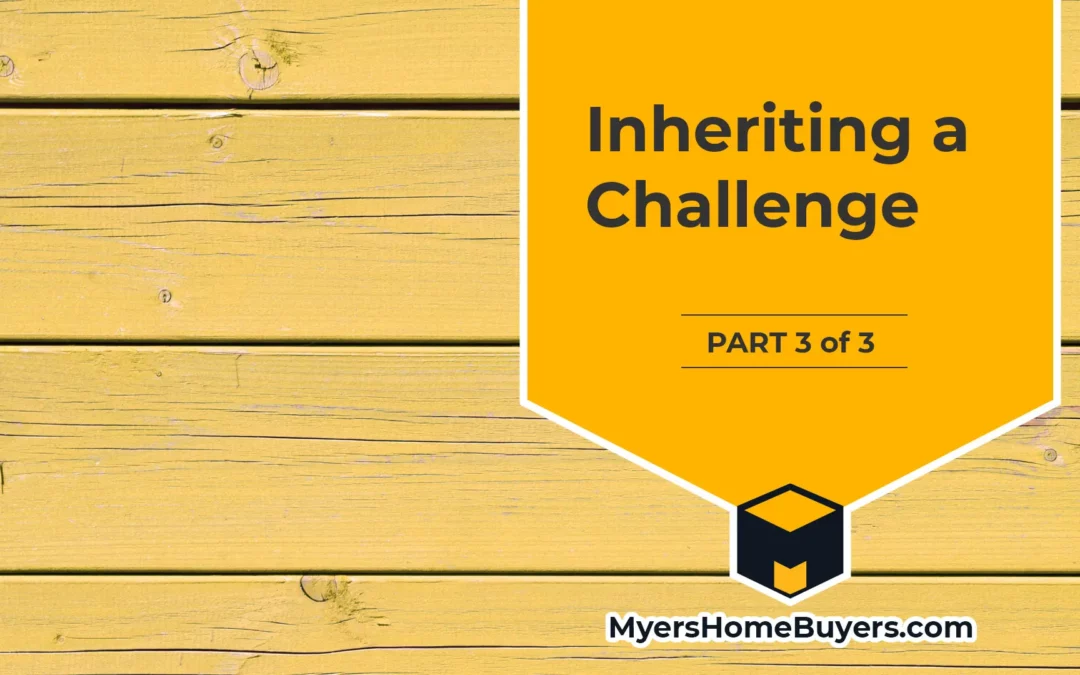Selling a home you’ve inherited from a loved one is a big responsibility, and it can be a very emotional process. And if you’ve inherited a home in bad condition, your inheritance can be more of a challenge than a blessing.
To put a typical house on the market, you would address the issues resulting from normal wear and tear, like patching holes and cracks in the walls and ceilings, and fixing broken appliances and HVAC systems. You should repair any leaky faucets and replace broken window glass. You might choose to update with paint colors, light fixtures or ceiling fans. You would make sure the yard is appealing, and be sure the foundation and roof are in good condition.
But if your loved one who was unable to keep up with regular home maintenance adequately, the property you’ve inherited could have both visible and hidden problems that could make it difficult to sell. If that’s the case, you need to evaluate a few things.
Comparing Homes
How does your home’s condition compare to other homes in the neighborhood? If your home is in the same shape as most of the houses in your neighborhood, you can expect a comparable selling price. But if your home is in much worse condition, you’ll need to expect a reduction in pricing.
Local Market
Is the real estate market for your neighborhood hot, cold or neutral? This will help you determine your pricing strategy, and think about how long it will take to sell your home.
According to Zillow, in 2018, the typical US home spent between 65 and 93 days on the market, from listing to closing. That means that a home with a typical 30 to 45-day close was on the market for between one and two months before accepting an offer.
Cost of Cleaning and Repairs
Before assessing all the needed repairs, you might want to do some general cleaning first or hire professional cleaners who can do this efficiently. Pet damage or pest infestations are not uncommon in inherited properties, and they need to be dealt with appropriately.
Make a list of the repairs you see, and a rough estimate of the cost of repairs. This is a great resource for estimating repairs. You’ll need to weigh the cost and time required for repairs, as well as the availability of contractors, and your own ability to manage things, especially if you’re managing long distance (here are some great tips for managing a remote renovation).
You can try to sell as-is, but if multiple big-ticket items need repairs, you may have difficulty getting an offer, and be in danger of having a deal fall apart after the inspection. Consider all of that in the context of all the costs that don’t stop just because the property is on the market, like lawn maintenance, security, mortgage, insurance and utility payments.
Clutter
If the home is full of stuff, has dated furnishings or if it’s a mess, home buyers will have a hard time imagining themselves in the home.
If you have the time and want to try and maximize the value of the personal belongings, then you should host a garage sale, estate sale, or auction. Or you can hire professional services that can’t handle the sale of the estate’s belongings for you. Or if you don’t want to deal with the belongings at all you can simply donate them to charities, institutions of your preference, or thrift stores.
If you can get those things taken care of, the standard real estate process may make the most sense. But if the condition, clutter, or repairs are more than you can handle, Myers Home Buyers can help.
We have a network of verified investors who are looking for homes just like yours. We’ll have competing cash offers for you in no time, so you can move on from your unwanted home knowing that you’re getting the best possible price.
Our process is very simple, and it doesn’t require you to do any cleaning, decluttering or repairs. You just pick the best cash offer, pick your closing date and you’re done. No inspections or hassle.


